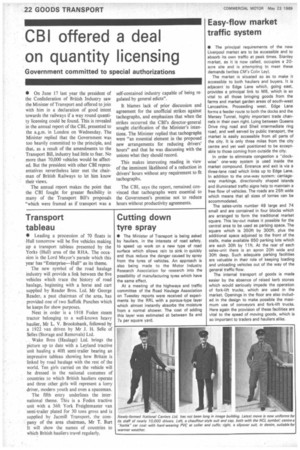CBI offered a deal on quantity licensing
Page 24

If you've noticed an error in this article please click here to report it so we can fix it.
Government committed to special authorizations
• On June 17 last year the president of the Confederation of British Industry saw the Minister of Transport and offered to join with him in a declaration of good intent towards the railways if a way round quantity licensing could be found. This is revealed in the annual report of the CBI. presented to the a.g.m. in London on Wednesday. The Minister replied that the Government was too heavily committed to the principle, and that, as a result of the amendments to the Transport Bill, industry had little to fear. No more than 70,000 vehicles would be affected. But the president with other CBI representatives nevertheless later met the chairman of British Railways to let him know their views.
The annual report makes the point that the CBI fought for greater flexibility in many of the Transport Bill's proposals -which were framed as if transport was a
self-contained industry capable of being re plated by general edicts".
It blames lack of prior discussion and agreement for the unofficial strikes against tachographs. and emphasizes that when the strikes occurred the CBI's director-general sought clarification of the Minister's intentions. The Minister replied that tachographs were "an essential element in the proposed new arrangements for reducing drivers' hours" and that he was discussing with the unions what they should record.
This makes interesting reading in view of the imminent likelihood of a reduction in drivers' hours without any requirement to fit tachograph s.
The CBI. says the report. remained convinced that tachographs were essential to the Government's promise not to reduce hours without productivity agreements.
































































































































